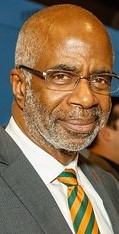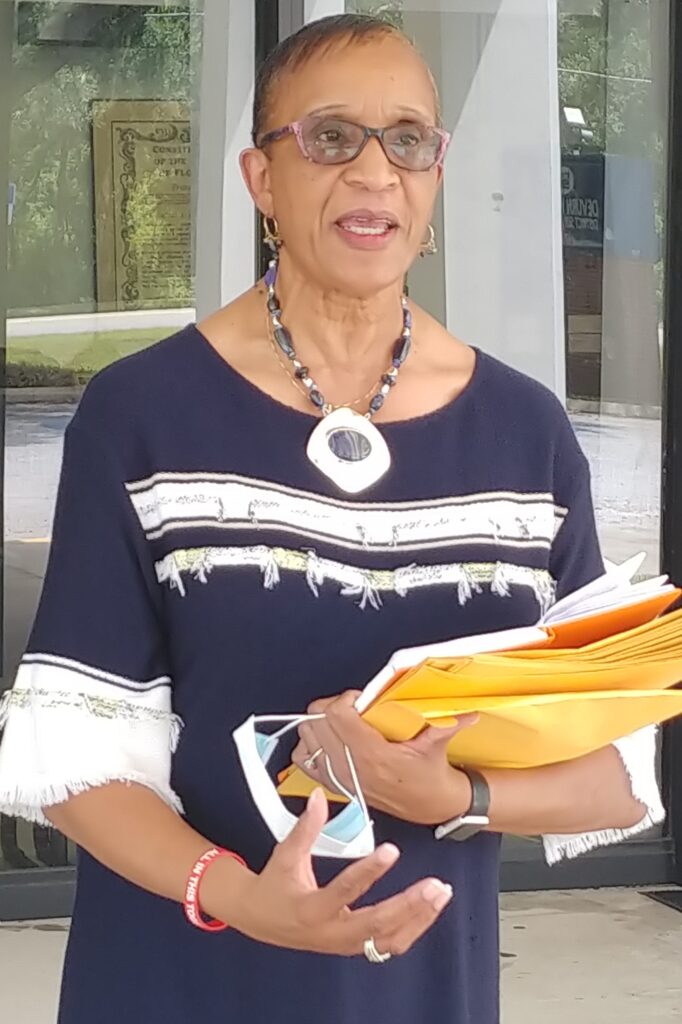
Task force sets sight on encouraging Blacks to get COVID-19 vaccination


By St. Clair Murraine
Outlook staff writer
While government officials and frontline workers across the country are demonstrating their trust in a recently released vaccine against the coronavirus, the challenge now is to persuade Blacks that the vaccination is safe enough to save lives.
The reluctance is so concerning that Rev. RB Holmes, pastor at Bethel Missionary Baptist Church, is chairing a task force to promote the importance of being vaccinated. He announced the task force, which will be directed by former city commissioner Elaine Bryant, during a Zoom meeting last Thursday.
Bryant outlined the three main objectives of the panel. She also named five sub-committees that will help to execute a plan to reach the most reluctant individuals, which surveys say are in Black communities.
That’s precisely the demographics that the task force want to convince to get immunize against COVID-19.
Bryant asked the task force members to consider ways to put together a “creative outside-the-box strategy to mobilize and educate, especially communities of color about the COVID-19 vaccine.”
She went on to outline the three main objectives of the task force: create a dashboard that would provide updates, develop a multi-media communication plan targeting the community, and develop a grass root strategy to reach underserved communities.
The task force is made up of a cross-section of residents that includes community leaders and medical doctors. The makeup of the task force represents “trusted voices in our community,” said Holmes, who is also publisher of the Capital Outlook.
“When we know that this vaccine is safe and proven to work,” Holmes said, “we do not want any communities to be left behind, especially the marginalized community and people of color.”
Apart from Walgreens and CVS, which have agreements with the federal government, there hasn’t been any other specific vaccine distribution locations announced for Tallahassee. Florida received 179,400 doses of the Pfizer vaccine last week when Gov. Ron DeSantis announced that long-term care residents and staff members at those facilities would be among the first to get vaccinated.
Meanwhile, the Florida Medical Association has appealed to the public to be patient for a more widespread distribution of the vaccine.
“There are far more health care providers and long-term care residents who qualify for the first round of the vaccine than there is vaccine available,” FMA President Mike Patete, told the News Service of Florida in a prepared statement. “Manufacturing, distribution, and administration still pose challenges and will require an extraordinary level of cooperation in order to ensure that everyone who wants the vaccine receives the vaccine as soon as it becomes available.”
The Black community doesn’t seem to be in a rush to be vaccinated, though. Studies have shown that more than 40 percent of Black people have indicated they won’t take the shot.
FAMU President Larry Robinson vehemently drove home the importance of why the task force has to be successful in reaching Blacks.
Without that, he said, “our churches won’t be safe, our homes won’t be safe, our colleges campuses won’t be safe.”
Most of the reluctance to being vaccinated stems from the outcome of the Tuskegee Syphilis Study, which ended in the 1970’s. During the study, Black men were told they would get medical care at no cost to them but were denied therapy for the disease that led to an untold number of deaths.
Dr. Temple Robinson, CEO of Bond Community Health Center, told the task force members the vaccine is safe. So far Moderna and Pfizer have rolled out vaccines across the country.
Robinson used the analogy of a cocklebur sticking to clothing to explain how spikes occur. The vaccine, she said, would prevent the virus from sticking to anyone.
“There is no virus in the vaccine,” she said, “but we are teaching the body to fight the spike.”
She used a hypothetical scenario of three people in a room to further make the case for being vaccinated. For instance, she said, if there are three people in a room and all of them have been vaccinated, they’ll be fighting the virus. In that case there will be “no place for this thing to land.”







